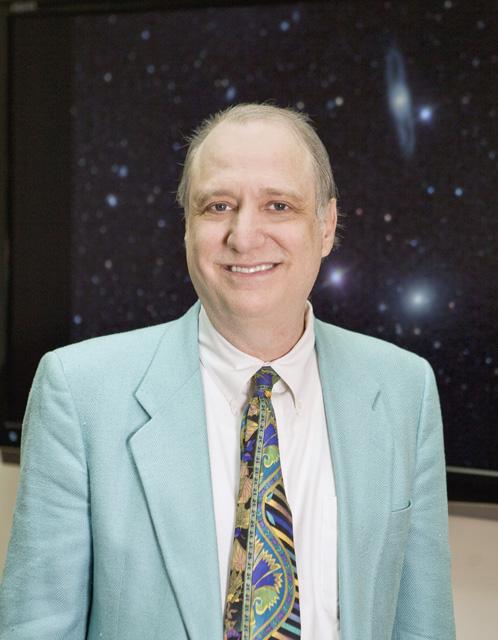Ever wondered what would happen if H.G. Wells’ time machine could really be built? According to a number of physicists studying time travel, the idea might not always be science fiction.
Students will have an opportunity to explore the possibility of time travel Friday in a lecture organized by John Carroll, professor of philosophy, and presented by renowned astrophysicist J. Richard Gott of Princeton University.
The lecture, from 2 to 3.30 p.m. Friday in Withers Hall, is free and open to the public.
Attendees do not need to have any specialized knowledge about astrophysics, according to Carroll.
“The lecture is a chance to see and hear prominent astrophysicist, Professor J. Richard Gott, present his recent thoughts on time travel,” Carroll said. “The lecture will be aimed at a general university audience and no background is required.”
Carroll touted Gott’s book, “Time Travel in Einstein’s Universe,” as a “wonderfully accessible and careful presentation of the physics of time travel. I expect his lecture to be every bit as good.”
The lecture will be supported by a diverse discussion panel that includes members from N.C. State, Duke and UNC-Chapel Hill.
“I see this as a great opportunity to bring different parts of our campus and the Triangle together for something that should be fun and educational,” Carroll said.
The following individuals are slated to be on the discussion panel:
Steve Reynolds, N.C. State physics professor
Chris Hazard, N.C. State doctoral student in computer science
Sara Bernstein, Duke philosophy professor
John Roberts UNC-Chapel Hill philosophy professor.
For most people, time travel belongs only to the realm of science fiction, but the lecture will look at the issue from various angles to explore the possibility of science fiction becoming science reality.
“Time travel will be looked at from many perspectives and different disciplines will be represented,” Carroll said. “Some of the issues will be about actual science; for example, specifics about time dilation and how this phenomenon shows that time travel to the future is real or questions about whether time travel to the past will be consistent with the true theory of quantum gravity.”
Other questions about time travel will be framed in terms of familiar science fiction stories and movies, according to Carroll.
“Some questions will be classic philosophical issues like whether free will is consistent with determinism. Time travel is a topic that lends itself to fun. It is also a topic that is very demanding,” Carroll said.
Carroll believes students will be pleased if they attend the meeting of leading scholars presenting groundbreaking research on the subject.
“It is just fun to see and hear world famous scholars presenting their work in an accessible way,” Carroll said. “That’s why I would have gone to the lecture as a student. It will also be exciting to see and hear astrophysicists, philosophers, science fiction writers and computer scientists learning from each other.”
“This sort of cross-discipline interaction doesn’t happen often enough. Basically, I am looking to generate excitement in our students about learning and scholarship,” Carroll said.
Carroll believes the topic is a great discussion topic for philosophers as well.
“We philosophers like to test the boundaries of our logic and our concepts,” Carroll said. “We like to test our philosophical theories of free will, identity, time, modality and causation against unfamiliar situations.”
Following the lecture and book signing is a conference aimed at specialists and researchers. During the conference, five philosophers will be presenting some of their current research and it will be very different from the lecture.
Registration for the conference is $10 for students. The topics for the conference range from the philosophy of physics to metaphysics about free will, truth and time.
“Some of the conference sessions will be accessible to just about anyone who likes to think,” Carroll said, “While some sessions would challenge even the brightest and most educated academics.”








